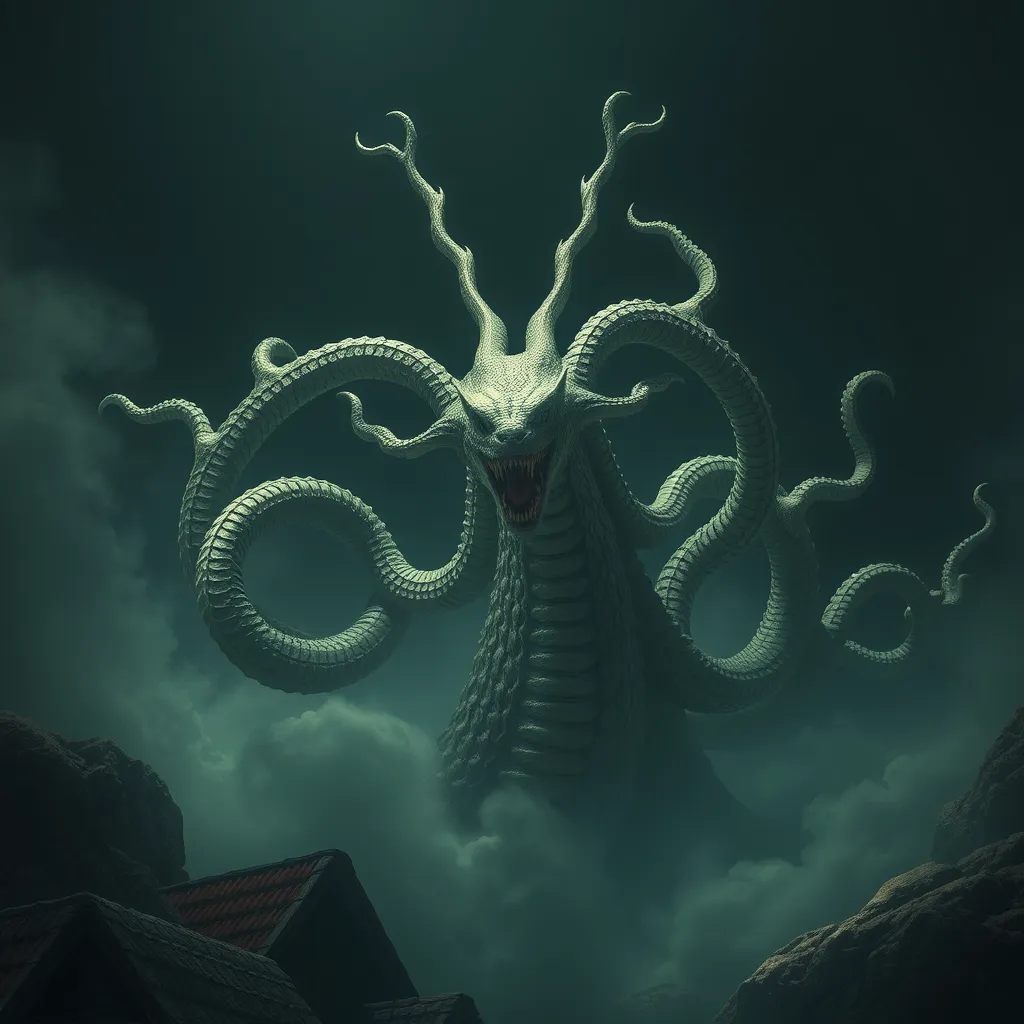The Hydra and the Quest for Knowledge: Examining the Monster’s Role in Intellectual Journeys
I. Introduction
The Hydra, a fearsome creature from Greek mythology, has captivated the imagination of generations. With its multiple heads and regenerative abilities, this monster embodies the complexities and challenges encountered in the pursuit of knowledge. The symbolism of the Hydra extends beyond mere myth; it represents the intellectual struggles and adversities that arise when seeking understanding. This article explores the intricate relationship between monsters, particularly the Hydra, and the quest for knowledge, highlighting how such narratives can inspire and inform our intellectual journeys.
II. The Mythological Background of the Hydra
The Hydra originates from the tales of ancient Greece, primarily associated with the hero Heracles (Hercules) and his second labor. According to myth, the Hydra dwelled in the swamps of Lerna, terrorizing the local populace. Each time Heracles severed one of its heads, two more would grow back in its place, representing an insurmountable challenge.
The Hydra serves as a potent symbol of the obstacles one encounters on the path to knowledge. Just as Heracles battled the creature, individuals face their own adversities when pursuing education and understanding. The monster’s regenerative ability signifies the persistent nature of challenges; overcoming one obstacle often leads to the emergence of another.
III. The Hydra as a Metaphor for Knowledge Acquisition
The multi-headed nature of the Hydra can be likened to the multifaceted aspects of knowledge. In an era where information is abundant yet overwhelming, the pursuit of knowledge can feel like attempting to slay a creature that continuously regenerates. The struggle against ignorance and misinformation is relentless, echoing the challenges faced by Heracles.
Moreover, the idea of ‘cutting off one head’ only to face new challenges mirrors the experience of learners. As one gains understanding in a particular area, new questions and complexities arise, requiring further exploration and effort. This cyclical nature of learning can be daunting but also rewarding, as it encourages deeper inquiry and critical thinking.
IV. Historical Interpretations of the Hydra
Throughout history, philosophers and scholars have drawn parallels between the Hydra and intellectual struggle. The creature has appeared in various forms in literature and art, often symbolizing the trials faced by those seeking knowledge. For instance:
- Plato: In his dialogues, he often discussed the nature of ignorance, portraying it as a monster that one must confront through philosophical inquiry.
- Dante Alighieri: In “The Divine Comedy,” he uses monsters to represent moral and intellectual failings that must be addressed on the path to enlightenment.
Case studies of prominent figures reveal how they faced their own Hydras:
- Albert Einstein: His journey in developing the theory of relativity was fraught with challenges and misconceptions that he had to navigate.
- Marie Curie: As a pioneer in science, she encountered significant barriers, including gender bias, yet her persistence led to groundbreaking discoveries.
V. The Hydra in Modern Contexts
In contemporary education and knowledge systems, the Hydra remains a relevant metaphor. The challenges of misinformation and information overload mirror the monster’s regenerative nature. With the advent of the internet, individuals are inundated with vast amounts of data, often leading to confusion and misunderstanding.
The implications for critical thinking and discernment are profound. In this age of rapid information exchange, the ability to evaluate sources, discern truth from falsehood, and engage in meaningful dialogue is crucial. Educators and learners alike must confront this modern Hydra to foster intellectual growth.
VI. Overcoming the Hydra: Strategies for Intellectual Growth
Embracing challenges as part of the learning process is essential in overcoming the Hydra of knowledge. Here are some strategies for managing complex information:
- Develop Critical Thinking Skills: Analyze and evaluate information rather than accepting it at face value.
- Practice Information Literacy: Learn to locate, evaluate, and use information effectively.
- Engage in Discussions: Dialogue with peers can provide new perspectives and insights.
Cultivating resilience and adaptability is also vital. Intellectual pursuits often require individuals to face setbacks and failures. Embracing these experiences as opportunities for growth can foster a more profound understanding of the subject matter.
VII. The Role of Community and Collaboration
The importance of dialogue and discourse in facing the Hydra cannot be understated. Collective knowledge can tackle multifaceted challenges more effectively than individual efforts alone. Collaborative environments in academic settings encourage diverse viewpoints and shared learning experiences.
Examples of successful collaborations in intellectual endeavors include:
- Research Teams: Collaborative research often leads to innovative solutions and breakthroughs.
- Community Learning Initiatives: Programs that engage local communities in education create a shared knowledge base that benefits all.
VIII. Conclusion
The Hydra’s significance in the quest for knowledge serves as a reminder of the challenges inherent in intellectual exploration. By viewing these challenges as opportunities for growth, individuals can develop a more profound understanding of themselves and the world around them. The journey of intellectual exploration is ongoing, and embracing the complexities represented by the Hydra can lead to richer, more meaningful knowledge acquisition.



